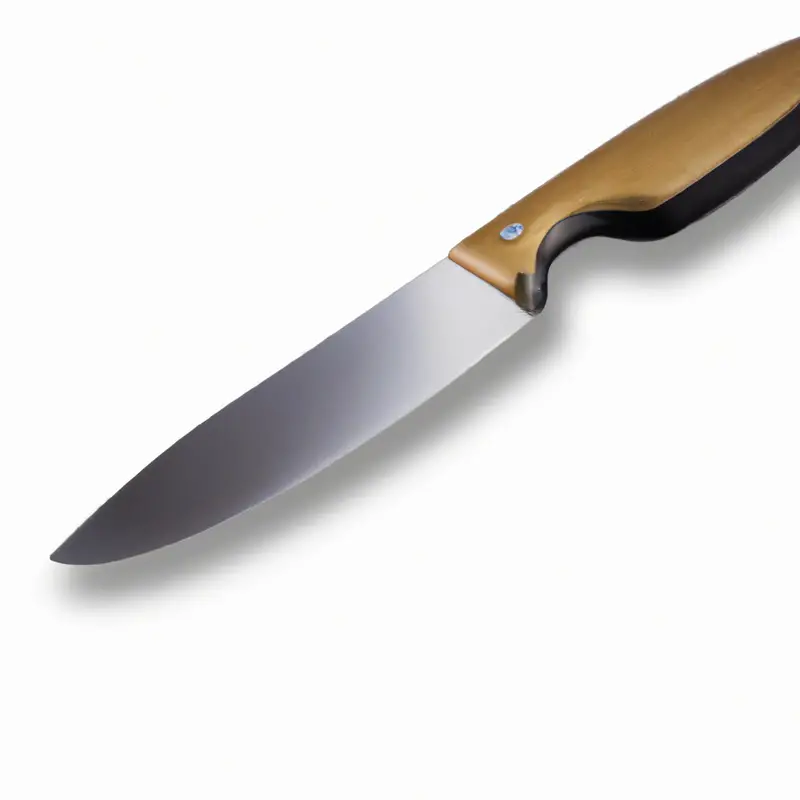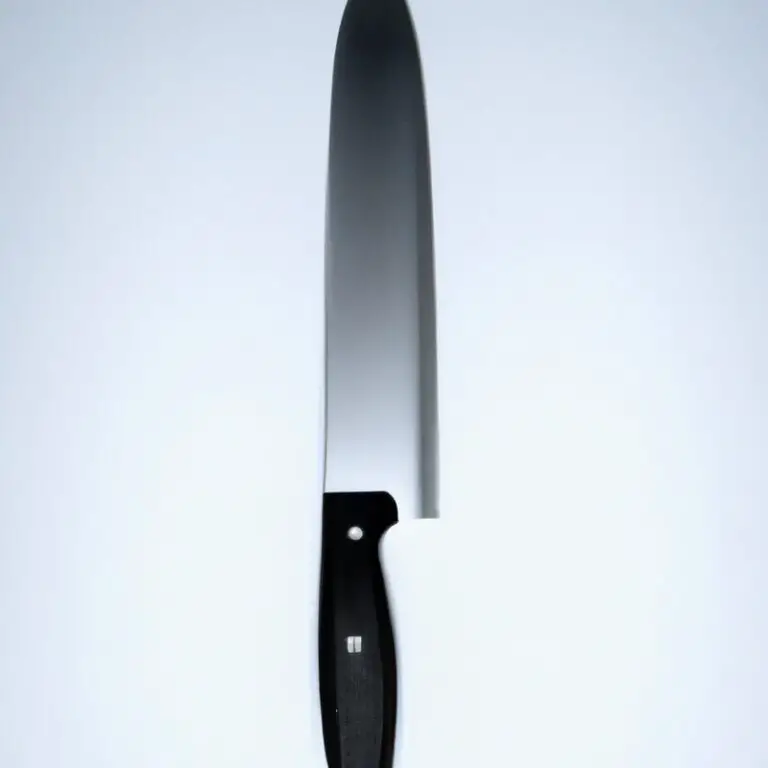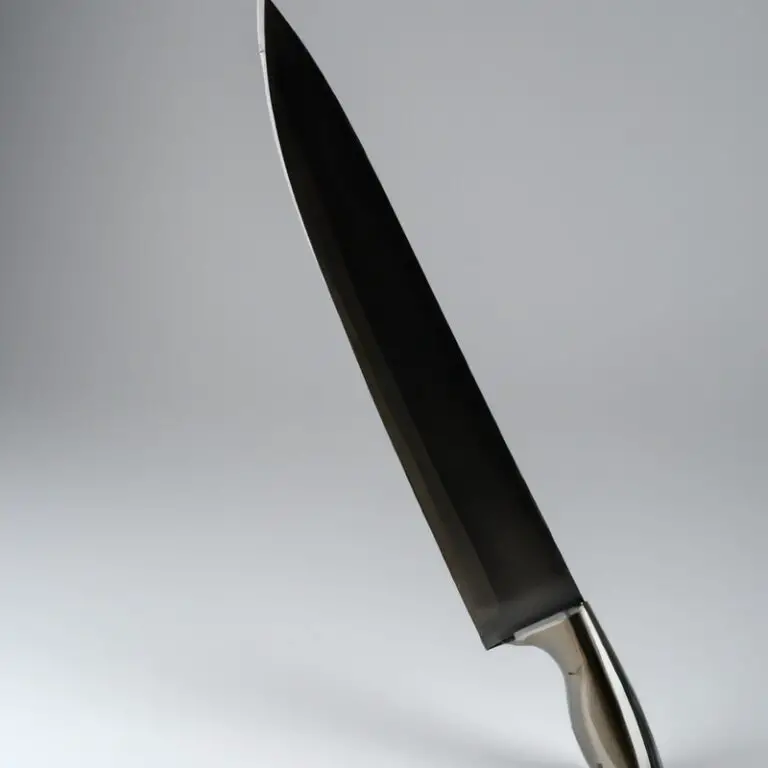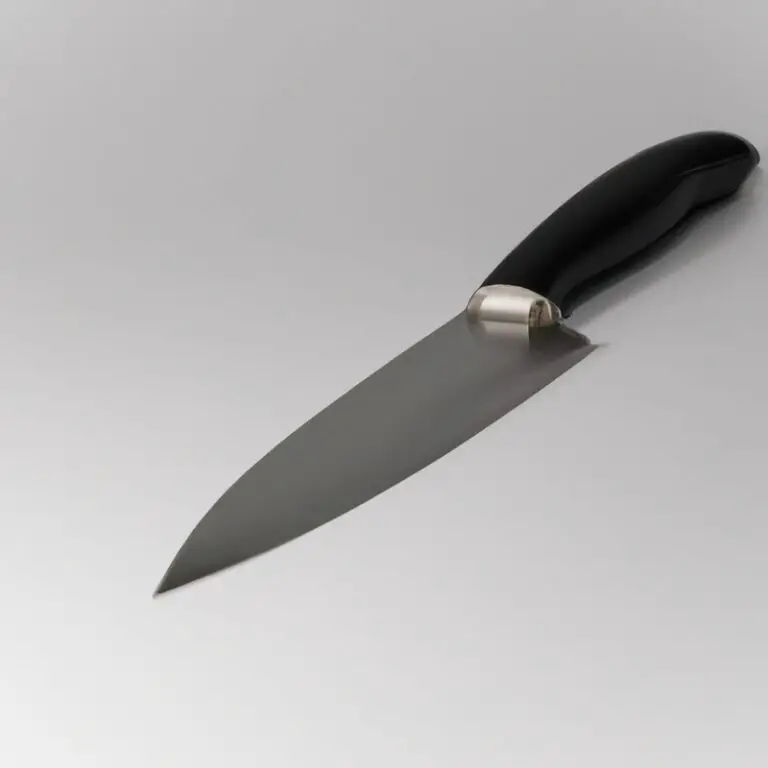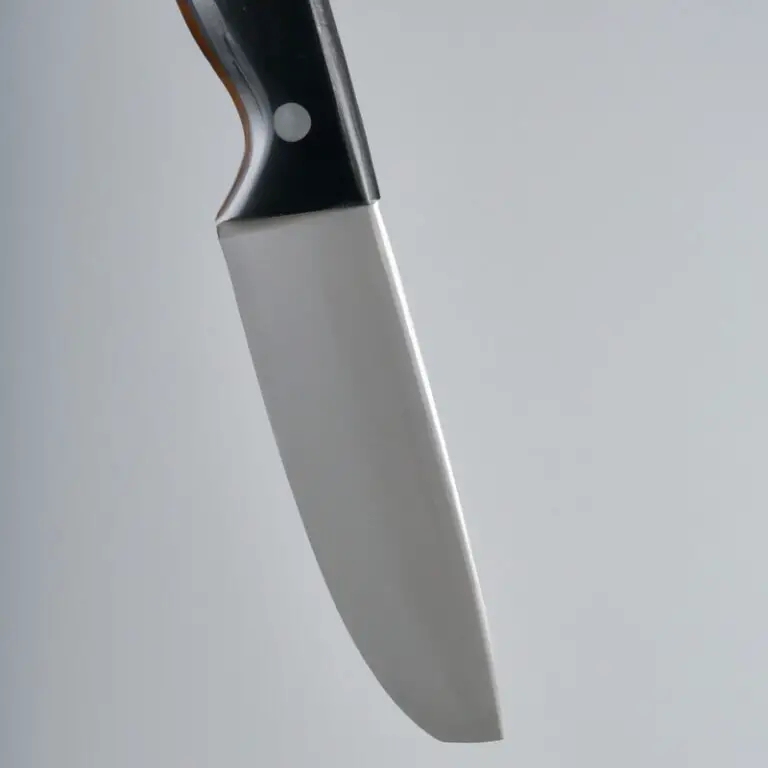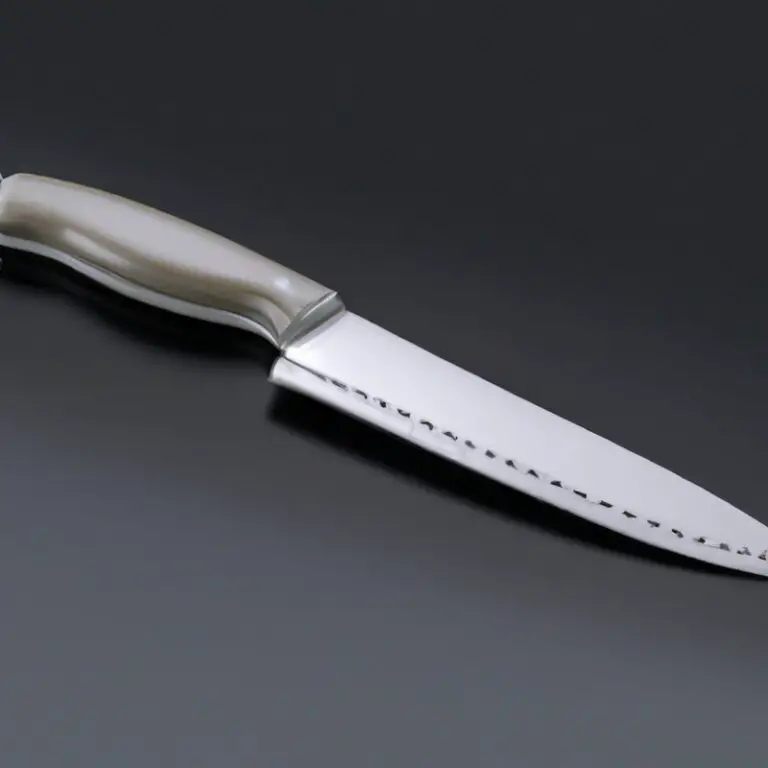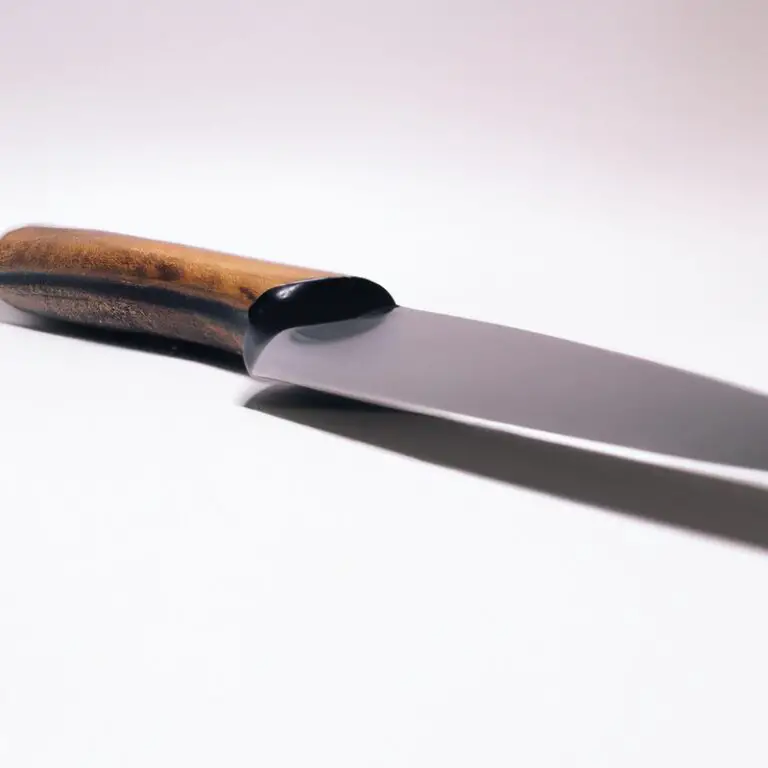How To Remove Odors From a Chef Knife?
Key Takeaways:
- Clean your chef knife with soap and water to remove any surface odors.
- Use a mixture of baking soda and water to eradicate stubborn smells from the blade.
- Try rubbing lemon or orange peels on the knife to eliminate unwanted odors naturally.
- Store your chef knife properly in a well-ventilated area to prevent further buildup of unpleasant scents.
As a chef, ensuring that your knife is clean and odor-free is crucial for food hygiene and safety. The smell from a chef knife can affect the taste of your food, and chemicals and organic matter can contaminate it.
Cleaning a chef knife can be tricky, and regular soap may not always do the job.
However, there are several methods you can use to remove even the most stubborn knife odors. In this blog post, I will share with you my tried-and-true tips for getting rid of the odors from your chef knife using simple ingredients from your kitchen pantry.
| Method | Description |
| Soap and water | Wash the blade with soap and water, then dry it with a clean cloth. |
| Lemon juice | Rub the blade with a lemon juice-soaked cloth, then rinse with water and dry. |
| Baking soda | Mix baking soda and water into a paste, apply it to the blade, and scrub with a non-abrasive brush. Rinse with water and dry. |
| Vinegar | Soak the blade in vinegar for a few minutes, then rinse with water and dry. |
Understanding the sources of chef knife odors and their effects on food hygiene and safety
The source of chef knife odors can be from both organic and chemical substances, such as garlic, onions, fish, or acidic foods. These odors can affect the taste and aroma of other foods that come into contact with the knife, compromising food hygiene and safety.
Bacteria, mold, or fungi can thrive on the knife, eventually leading to food contamination if not cleaned properly.
Therefore, understanding the sources of chef knife odors and their effects on food hygiene and safety is important in maintaining a healthy and safe kitchen environment.
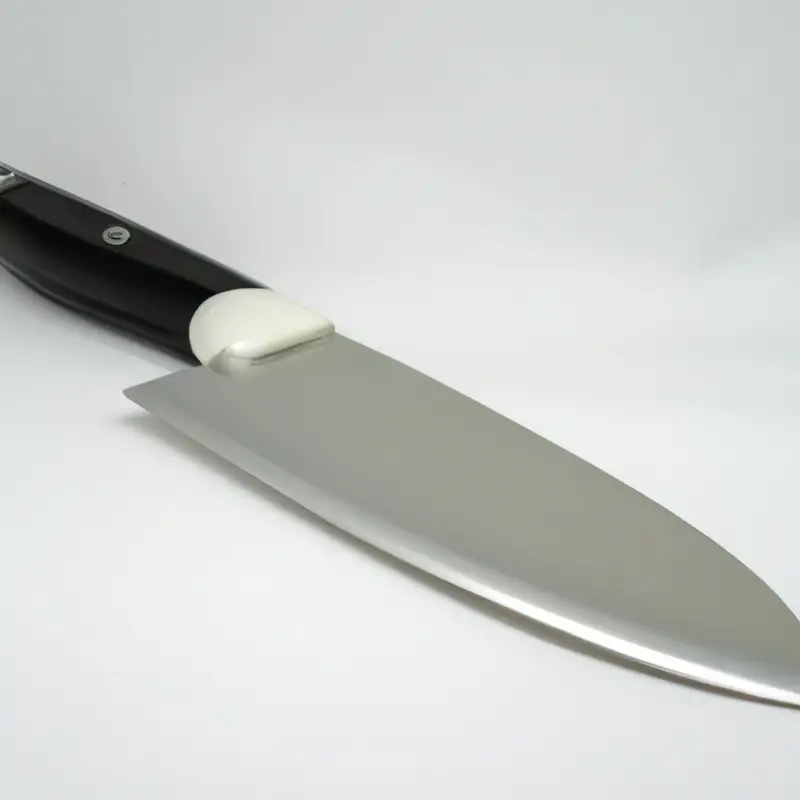
Common methods for cleaning a chef knife and their limitations
Common methods for cleaning a chef knife include soap and water, rubbing alcohol, and using a dishwasher. However, each method has limitations that may affect the performance and longevity of the knife.
Using soap and water is the most common method for cleaning a chef knife, but it may not completely remove all odors and bacteria from the knife.
Rubbing alcohol, on the other hand, can be effective in removing odors, but it may cause the knife to rust or corrode if not diluted properly. Using a dishwasher can be convenient, but it can also damage the knife’s blade and handle, leading to odors and bacterial growth.
Additionally, the high heat and strong detergents used in a dishwasher can cause the knife to lose its sharpness and dull over time.
Therefore, it is important to understand the limitations of each method and choose the one that works best for your particular knife and cleaning needs. Proper and regular cleaning is essential in maintaining a fresh-smelling and safe-to-use chef knife.
How to properly wash a chef knife to prevent odor buildup
To properly wash a chef knife and prevent odor buildup, follow these steps:
- Rinse the knife under running water to remove any visible debris and leftover food particles.
- Apply a small amount of dish soap to the blade and use a soft sponge or cloth to gently scrub the knife.
- Rinse the knife under running water to remove any remaining soap residue.
- Dry the knife immediately with a clean towel to prevent water spots and rust.
- Store the knife in a safe and dry place, away from any moisture or humidity.
Note: Avoid using harsh chemicals or abrasive materials to clean your chef knife as they can damage the blade and remove its natural protective layer.
The benefits of using a vinegar solution to remove stubborn odors from a chef knife
Using a vinegar solution to remove stubborn odors from a chef knife is a cost-effective and natural method. Vinegar is known for its acidic properties that can break down and dissolve lingering odors in the knife.
It also has antibacterial properties that ensure a clean, sanitized blade.
To use the vinegar solution, mix equal parts of water and white vinegar and soak the blade for five to ten minutes. After soaking, rinse the knife with water and dry it with a clean cloth.
This method is safe for use on all types of knives and does not leave behind any chemical residue.
Overall, using a vinegar solution is an effective way to remove stubborn odors from a chef knife and maintain its hygiene.
Using baking soda to neutralize chemical and organic odors in a chef knife
Baking soda is an effective odor neutralizer for chef knives. It works by absorbing the odor-causing molecules from the knife surface.
To use baking soda, mix it with water to form a paste, then apply it to the knife surface and let it sit for several minutes.
After that, rinse the knife with water and dry it thoroughly. Baking soda is safe to use and can be used for both chemical and organic odors.
However, it may not be effective for very strong odors.
In this case, you can repeat the process several times or try other methods like activated charcoal.
The advantages of using activated charcoal to eliminate strong odors from a chef knife
Activated charcoal is an effective and natural way to eliminate strong odors from a chef knife. This porous substance works by trapping odor molecules in its tiny pores, neutralizing them and leaving your knife odor-free.
Some of the advantages of using activated charcoal to remove odors from a chef knife include its affordability, easy availability, and versatility.
Activated charcoal can be used on various types of knives without causing any damage to the metal or blade. It is also safe to use and does not contain any harsh chemicals that may be harmful to both the knife and the user.
Simply place a small amount of activated charcoal in a container or wrap it in a cloth, and place your knife on top.
Leave it to sit for a few hours or overnight. The charcoal will absorb the odors, leaving your knife smelling fresh and clean.
Overall, using activated charcoal is a practical and efficient method to remove stubborn smells from a chef knife.
It is a great option for those who prefer a natural and chemical-free solution to eliminate odors while maintaining the quality of their knife.
How to sanitize a chef knife after removing odors
Sanitizing a chef knife after removing odors is important for maintaining food hygiene and safety. To sanitize your knife, use hot, soapy water and scrub the blade and handle thoroughly.
Rinse the knife under hot water and dry it with a clean towel.
You can also use a solution of water and bleach (1 tablespoon of bleach per gallon of water) to sanitize the knife. Be sure to rinse the knife thoroughly after using this solution and dry it completely.
Do not put your knife in the dishwasher as harsh detergents and high heat can damage the blade.
To further protect and preserve your sanitized knife, store it in a safe and dry place.
The importance of proper storage to prevent odor buildup in a chef knife
Proper storage of a chef knife plays a crucial role in preventing odor buildup. Storing a knife in an enclosed space or in contact with food residues can lead to the growth of bacteria and germs, resulting in unpleasant odors that can transfer to the food being prepared.
The ideal storage location for a chef knife is in a knife block or on a magnetic strip where it can air dry and remain separate from other utensils.
It is also important to keep the blade clean and dry before storage to prevent the growth of bacteria and the buildup of rust. When travelling with a chef knife, it should be covered with a sheath or placed in a knife roll to avoid damage and prevent odors from transfering to other items.
By properly storing a chef knife, you will ensure that it remains safe, hygienic, and odor-free.
Selecting an appropriate cutting board to reduce knife odors
Selecting the right cutting board can significantly reduce knife odors and improve food hygiene. Opt for cutting boards made of non-porous materials like plastic or bamboo, which are easy to clean and fairly resistant to odors.
Avoid using wooden cutting boards as they are porous and can trap bacteria and odors inside.
Additionally, using separate cutting boards for specific types of food (such as meat, vegetables, and fruit) can prevent cross-contamination and reduce the buildup of lingering odors. Remember to wash and sanitize your cutting board regularly to maintain its cleanliness and prevent odors from developing.
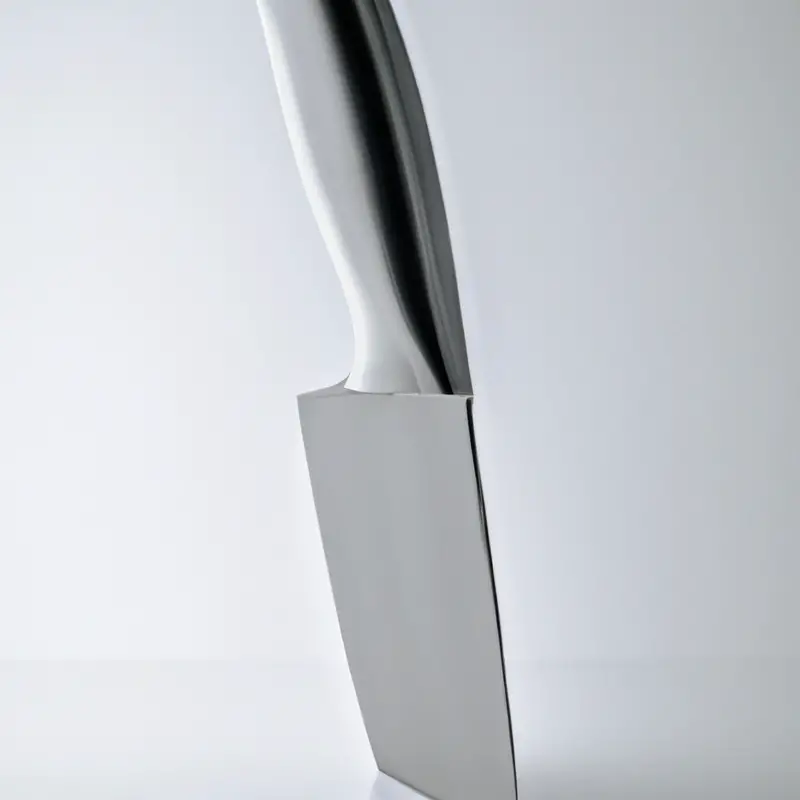
Tips for maintaining a fresh-smelling chef knife in between uses
To maintain a fresh-smelling chef knife in between uses, here are few helpful tips:
- Wash your knife with warm soapy water and dry it thoroughly after every use.
- Never leave it wet or soak it in water for a long time as it encourages bacterial growth and produces unpleasant odors.
- Use a separate cutting board for meat, fish, and vegetables to prevent cross-contamination and the transfer of odor.
- Wipe your knife down with a cloth soaked in vinegar or lemon juice before storing it in a dry place. This will help to neutralize any odor left on the blade.
- Use a knife block or sheath to store your knife instead of leaving it exposed in the air.
By following these simple tips, you can keep your chef knife clean, fresh, and odor-free.
Final Verdict
Maintaining a clean and odor-free chef knife is crucial for ensuring food safety and hygiene. By understanding the sources of odors and implementing proper cleaning techniques such as washing with soap, vinegar solution, baking soda, and activated charcoal, you can effectively remove stubborn odors from your chef knife.
Additionally, proper storage and selection of cutting board play a crucial role in preventing odor buildup.
Remember, a fresh and clean-smelling chef knife not only improves the quality of your food but also promotes a healthy and safe kitchen environment. By following these tips, you can ensure that your chef knife remains in top condition and continues to serve you for years to come.

